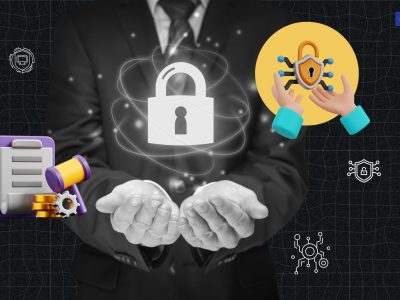What are The Most Relevant Cybersecurity Questions to Ask Your IT Department?

When it comes to managing professionals who know a lot more than you do in their department, a senior employee or an entrepreneur may wonder which set of cybersecurity questions you should ask the IT Department.
It is important to understand that Cyber theft is a challenging issue. It may be something that you are not even aware of, and might happen silently behind your back.
In such a scenario, it is important to remember the right cybersecurity questions to ask the IT Department.
Here are the right questions to ask your IT department, and these can be some of the most satisfactory answers.
Cybersecurity Questions to Ask Your IT Department
Ask these questions to your IT department to be sure about your cybersecurity.
What are the Lines of Defence against Cyber Theft?

In today’s world, worries regarding theft are not just confined to the theft of hardware. However, the fear revolves around the problems of data theft.
Hence, it is important to understand that this fear is more than what it used to be. With data theft, a hacker can do a large number of things.
Cyber attackers may lock down a company’s entire systems and shut down operations. While doing so, they can demand a ransom to help the company get things back on track.
They may get direct access to your accounts and use the accounts for malicious purposes.
Most importantly, attackers and hackers may steal data from your clientele and use it in the wrong and malicious ways.
Solution To These Problems.
There are a couple of solutions to problems of this sort, which may include things like
Firewall Protection:
Ensure that the IT Department uses a firewall, as hackers are willing to do these things remotely. In such scenarios, a firewall can protect in various ways, including.
The firewall can detect attempts to enter the IT system from outside and access attempts made by foreign entities.
The firewall can also detect attempts by foreign entities that have been able to enter and remain undetected while adopting the pattern well.
Hardening the Software and Hardware Resources.
Has your company hardened its software and hardware resources recently?
It can be one of the most crucial and effective protections against the problem of IT theft.
This is done by professionally conducting a cybersecurity vulnerability assessment, as the advanced attackers know that vulnerabilities are inevitable.
Having an idea of the existing vulnerabilities can be useful in understanding the weak points through which cyber attacks may happen and what can potentially cause data theft.
Strong Encryption of Data.
This is another crucial aspect that needs to be considered. Although data Encryption can be beneficial, not all algorithms are of equal competence.
Data thieves generally try to avoid systems that may take more time to crack; thus, having a strong algorithm may help.
Algorithms like Rivest-Shamir-Adleman(RSA) and Advanced Encryption Standard (AES) are military-grade algorithms, and data thieves may find them time-consuming and difficult to crack.
Data thieves tend to skip those time-consuming systems. They are opportunists, and they go for the low-hanging fruit first.
2. What is the Plan If the System is Under Attack?

The second most important cybersecurity question to ask the cybersecurity team concerns their plans in case of attacks.
It is always important to have a proper plan to cater to the needs and requirements of damage mitigation. A clear plan ensures an adequate plan to make navigation easy during the crisis.
Solution
In these cases, a software-based solution can be better as it may prevent human errors. However, personnel also remain important, as human beings are required to maintain a system like that.
Having human beings working to protect data 24/7 can never be cost-effective. Instead, it is important to have a system that will react immediately in case of any breach.
This software system shall be a solution must be able to react and defend simultaneously. If there is a breach, then such systems are expected to detect any active or inactive foreign presence within the system and then defend against the alien presence with unauthorized access.
Once the system is back on track and ready for action, the most relevant Cybersecurity questions to ask are whether you are prioritizing precaution over cure or not/
Your system must be able to detect problems first to prevent them and then fix them.
3. Compliance with the Law Regarding Customer Information.

The Third most relevant cybersecurity question is whether you are compliant with the laws and regulations related to customer information.
Several kinds of laws need to be followed. In the USA, three standards of law are crucial, and abiding by all three includes federal law, state law, and industry regulations.
Federal Laws.
Federal laws in the United States mostly lack statutes related to cybersecurity.
However, the Legislation mostly deals with how government agencies access and use personal information.
Apart from that, there are laws protecting medical and legal records, along with statutes dealing with information used to commit premeditated felonies, particularly frauds, in case of subjecting personal information to the silent treatment.
State-Level Laws
Each state is different, and hence, each state has different laws regarding the treatment of personal information. As each state is different, its laws are also different from each other.
Statutes should be easy to interpret at least; it must be clear whether the IT department needs to work on them or not.
Compliance with Notification Updates.
Several states passed new laws shortly after the enactment of Europe’s General Data Protection Regulation (GDPR) in 2018.
Some states also incorporated GDPR as “breach notification” into their statutes, which lays clear guidelines for companies to notify individuals if their personal information leaks during an attack.
Cybersecurity Questions to Ask Your IT Department: Summing Up
The above-mentioned questions are some of the most important aspects that any owner or founder must be clear on, and it is important to ensure that the IT team follows all the crucial regulations and laws.
As laws and regulations become stricter, it is important to take proper preventive measures, as any information breach may lead to problems for companies.
Ensuring the IT department is in par with the industry standards and regulations is important, as any breach may lead to serious consequences.

























